THE WEALTH OF NATURE
THE WEALTH OF NATURE
How Mainstream Economics Has Failed the Environment
Robert L. Nadeau

Columbia University Press New York
COLUMBIA UNIVERSITY PRESS
Publishers Since 1893
New York Chichester, West Sussex
cup.columbia.edu
Copyright 2003 Columbia University Press
All rights reserved
E-ISBN 978-0-231-50776-9
Library of Congress Cataloging-
in-Publication Data
Nadeau, Robert, 1944
The wealth of nature: how mainstream
economics has failed the environment /
Robert L. Nadeau.
p. cm.
Includes bibliographical references and index.
ISBN 0-231127987
ISBN 0-231127995 (pbk.)
1. Economic developmentEnvironmental aspects.
2. GlobalizationEconomic aspects.
3. GlobalizationEnvironmental aspects.
I. Title.
HD 75.6 .N34 2002
333.7dc21
2002192651
A Columbia University Press E-book.
CUP would be pleased to hear about your reading experience with this e-book at .
To my wife, Kathy Wax
with gratitude for all her patience and understanding.
CONTENTS
O nce, during a flight from San Francisco to Washington, D.C., I observed vast numbers of trucks and milelong strings of railroad cars moving along extensive networks of highways and tracks that threaded in all directions like a circulation system in some giant organism. Products from factories and farms were moving through these arteries toward distant cities and coastal ports, while raw or processed materials were flowing in the other direction to processing and manufacturing plants. I imagined that the web like connections between electric power plants, transformers, cables, lines, phones, radios, televisions, and computers could be compared with the spine and branches of a central nervous system, and that centers of production, distribution, and exchange could be likened to tissues and organs. I enlarged this frame in my minds eye to include all of the centers of production, distribution, and exchange and all of the connections between them in the global economy. This conjured up the image of a superorganism that feeds off the living system of the planet and continually extends its bodily organization and functions into every ecological niche.
I realized, of course, that the global economic system is not an organism. It is a vast network of technological products and processes that human beings created in an effort to enhance their material well-being by utilizing the resources of nature. Our species was able to create this system because our evolutionary history was, in one fundamental respect, unique. The evolution of the bodies and brains of our ancestors resulted, about sixty thousand years ago, in the capacity to acquire and use fully complex language systems. In these systems, a limited number of basic sounds, or phonemes, can be grouped together variously in word symbols within complex grammatical and syntactical structures to convey an infinite variety of meanings.
The ability to coordinate experience based on themes and narratives and to externalize ideas as artifacts allowed our ancestors to live in non-species-specific environments and to increase their numbers well beyond the limit that the usual dynamics of evolution would have allowed. Following the invention of a new narrative in the seventeenth century called science and the subsequent development of a host of new technologies, our ability to extend control over the processes of nature increased exponentially. This eventually resulted in the creation of a global economic system that does, in ecological terms at least, feed off the living system of the planet and extend its organization into virtually every ecological niche. And if this economic system continues to grow at the current rate based on existing technologies, it could easily undermine the capacity of the system of life to sustain our growing numbers.
Still ruminating on these matters as my plane was about to land at Washingtons National Airport, I asked two large questions: Why do we coordinate our activities in the global economic system in ways that are so insensitive to the impacts of this system on the global environment? How can we begin to coordinate these activities in ways that could realize the goal of achieving a sustainable global environment? The answers to the first question that were eventually included in this discussion are complex and cannot be reasonably summarized here. It is, however, important to note at the outset that attempts to answer the second question led to a radical conclusion about the narrative that is almost universally used by economic planners in both business and government to manage the growth and expansion of the global market systemneoclassical economic theory. The radical conclusion is that fundamental assumptions about the character of economic reality implicit in the mathematical formalism of this theory are such that there is no basis for positing viable economic solutions to environmental problems within its framework.
The primary reason this is the case, which is not widely known or appreciated and which will be examined and explored throughout this discussion, is the following. The conception of the relationship between parts (economic actors and firms) and wholes (market systems) in neoclassical economics is completely different from and wholly incompatible with the actual dynamics of the relationship between parts (organisms) and whole (ecosystem or biosphere) in the global environment. This disjunction between partwhole relationships in an economic theory and the actual dynamics of partwhole relationships in physical reality is, as we shall see, no trivial matter. It explains why there is no basis in this theory for positing viable economic solutions to the crisis in the global environment and why the framework of the theory cannot be revised in ways that could provide these solutions.
If the framework of neoclassical economic theory could be enlarged in ways that could allow us to account realistically for the costs of doing business in a potentially sustainable global environment, there would be no need to question its usefulness. But if this is not in principle a possibility, it seems reasonable to conclude that students of economists should do what the best scholars have always done when an orthodox theory is incapable of coordinating experience with reality in ways that lead to the best or most desirable outcomes. They should develop a new theory that can serve as the basis for coordinating experience in economic reality in a potentially sustainable global environment and displace the neoclassical economic paradigm with that theory.
We have already witnessed some movement in this direction. Many well-known mainstream economists, including a number of Nobel laureates, have openly rejected assumptions about economic reality in neoclassical economics, and there is a growing awareness in the entire community of professional economists of the inherent limitations of this theory. Equally interesting, virtually all of the recent theoretical advances in mainstream economics, such as game theory and nonlinear analysis, challenge these assumptions and seek to model economic reality based on a marginally different set of assumptions. Yet most mainstream economists remain firmly attached to the neoclassical economic paradigm, and the vast majority of economic planners in both business and government are guided by predictions and analyses based on this paradigm.
The intent here is not to denigrate the virtues of the free market system or to argue that this system should be displaced by another system. It is to make the case that the only way in which we can hope to preserve most of the substantive benefits of free market economies is within the framework of an environmentally responsible economic theory. Recent studies in environmental science indicate that the time frame during which we can hope to obviate the prospect that large-scale changes in the global environment will become irreversible is a few decades at most. If we fail to meet this challenge, the existence of literally billions of human beings will be threatened, and conditions in geopolitical reality are likely to become quite chaotic.

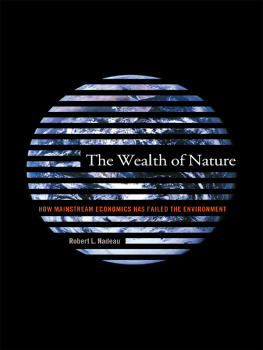
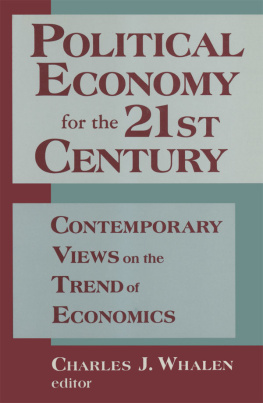
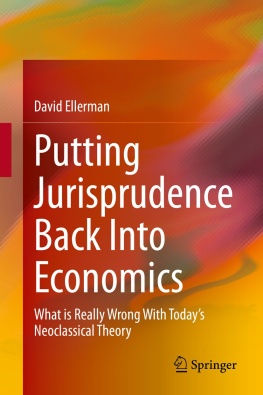

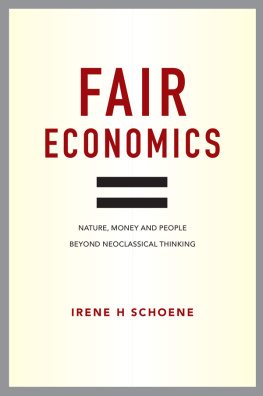
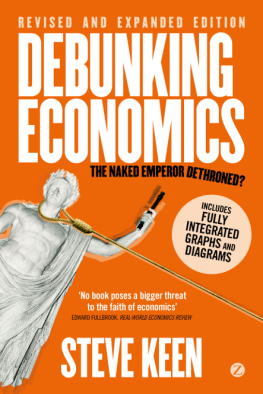
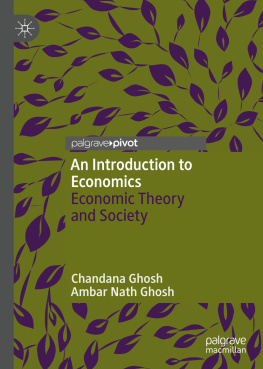
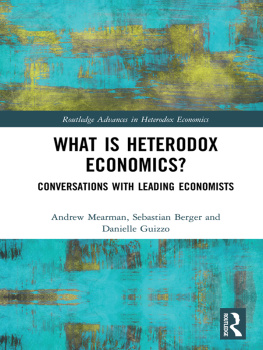
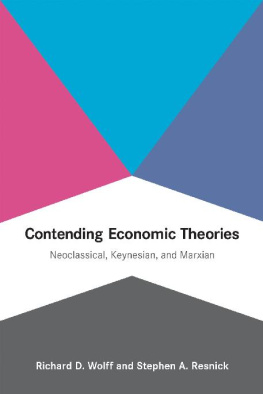
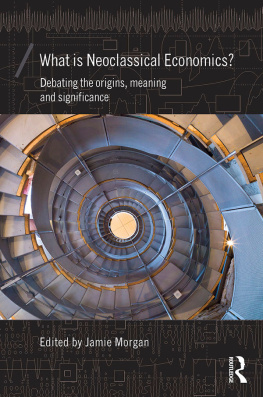
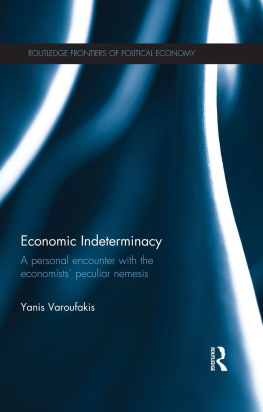
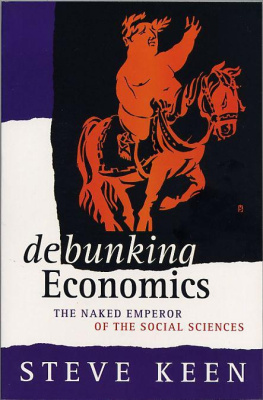
 Columbia University Press New York
Columbia University Press New York